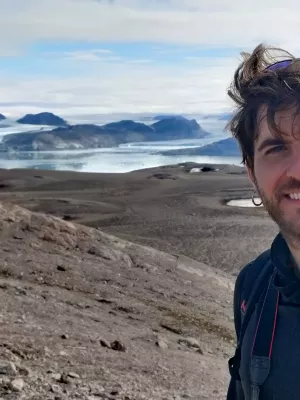
Albert Brangarí
Researcher

Pathways from research to sustainable development : Insights from ten research projects in sustainability and resilience
Author
Summary, in English
Drawing on collective experience from ten collaborative research projects focused on the Global South, we identify three major challenges that impede the translation of research on sustainability and resilience into better-informed choices by individuals and policy-makers that in turn can support transformation to a sustainable future. The three challenges comprise: (i) converting knowledge produced during research projects into successful knowledge application; (ii) scaling up knowledge in time when research projects are short-term and potential impacts are long-term; and (iii) scaling up knowledge across space, from local research sites to larger-scale or even global impact. Some potential pathways for funding agencies to overcome these challenges include providing targeted prolonged funding for dissemination and outreach, and facilitating collaboration and coordination across different sites, research teams, and partner organizations. By systematically documenting these challenges, we hope to pave the way for further innovations in the research cycle.
Department/s
- Microbial Ecology
- Microbial Biogeochemistry in Lund
- BECC: Biodiversity and Ecosystem services in a Changing Climate
- MERGE: ModElling the Regional and Global Earth system
- MEMEG
- Dept of Physical Geography and Ecosystem Science
- eSSENCE: The e-Science Collaboration
- LU Profile Area: Nature-based future solutions
- LUCSUS (Lund University Centre for Sustainability Studies)
Publishing year
2024
Language
English
Pages
517-533
Publication/Series
Ambio
Volume
53
Issue
4
Document type
Journal article
Publisher
Springer
Topic
- Social Sciences Interdisciplinary
Keywords
- Climate change adaptation
- Knowledge co-creation
- Knowledge transfer
- Resilience
- Sustainable development goals
- Upscaling
Status
Published
Research group
- Microbial Ecology
- Microbial Biogeochemistry in Lund
ISBN/ISSN/Other
- ISSN: 0044-7447

